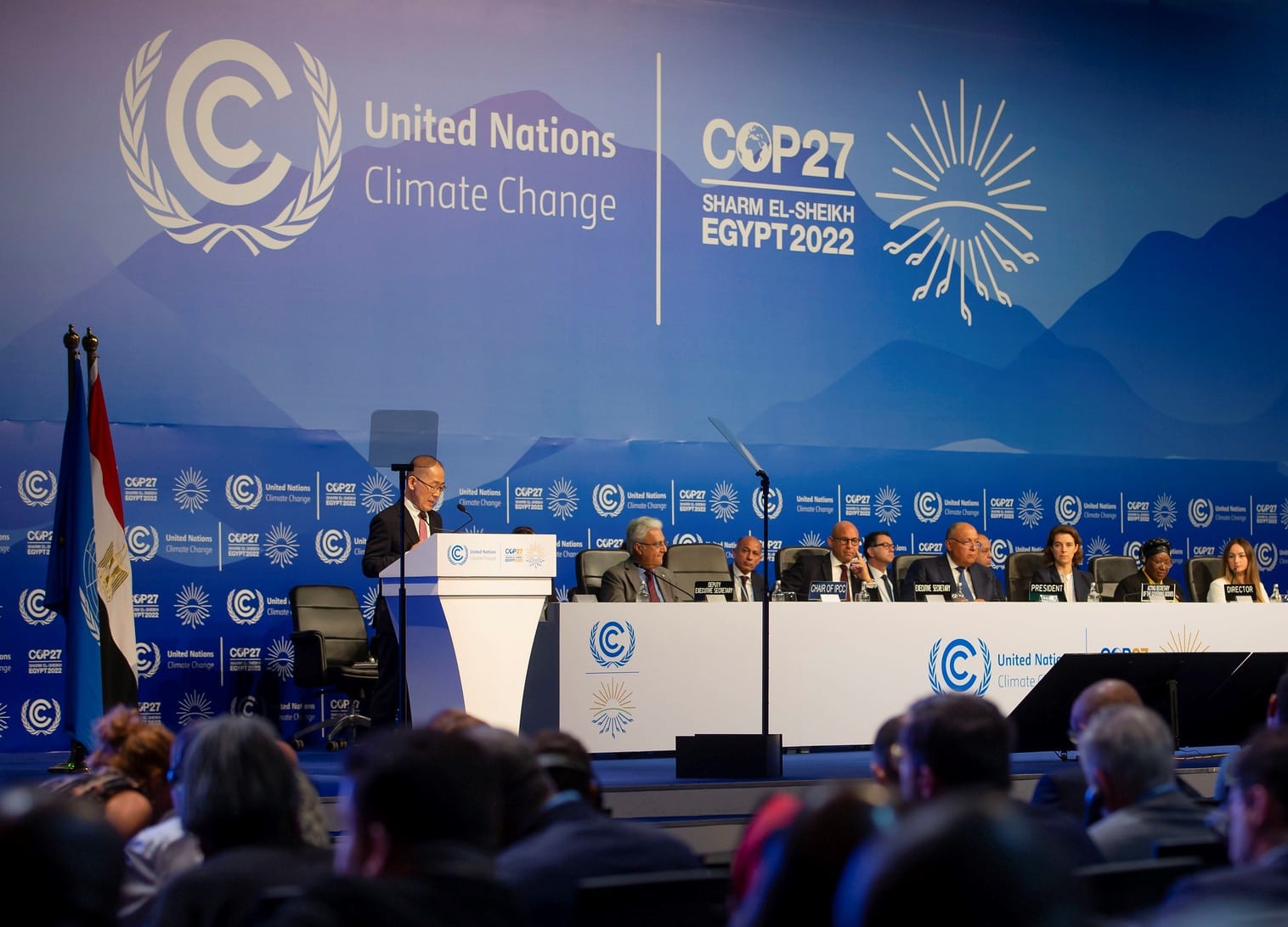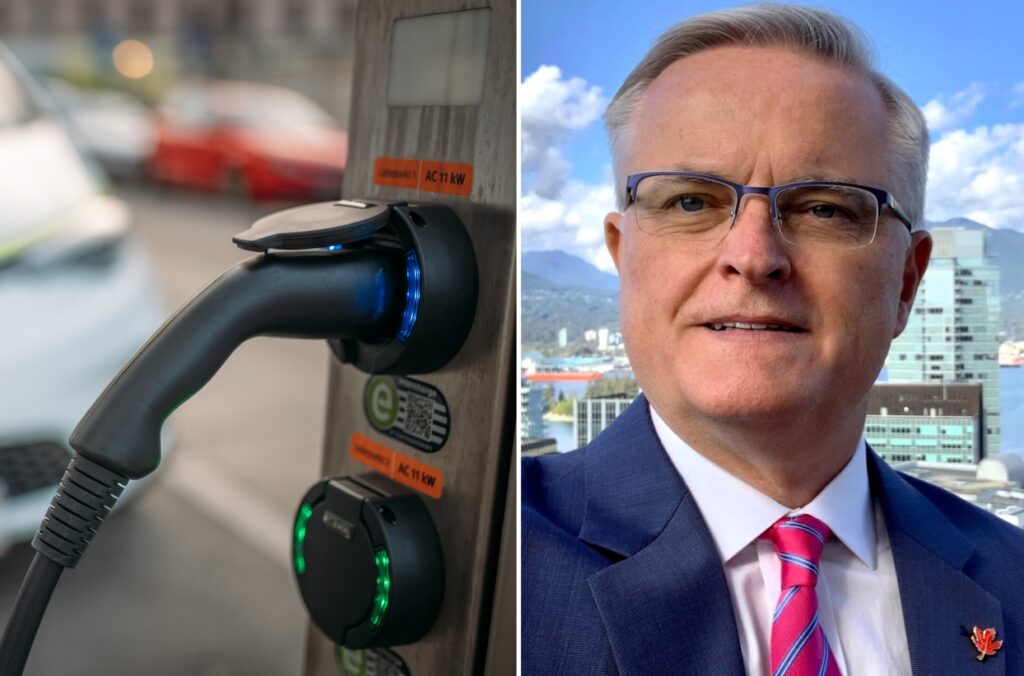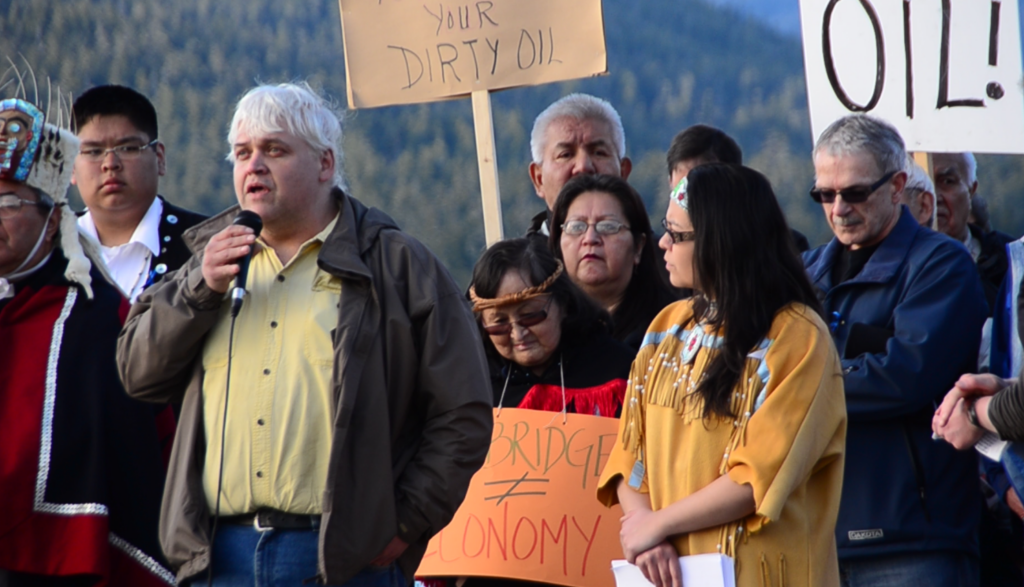Russia has sent dozens of executives from the country’s vast fossil fuel industry to COP27, including two sanctioned oligarchs with significant interests in coal.
Oleg Deripaska, who has large stakes in multiple coal companies, and Andrey Melnichenko, who transferred ownership of Russia’s largest coal producer to his wife in March as sanctions were brought in, are both set to attend.
Sixteen other individuals listed as part of Russia’s official delegation are tied to businesspeople currently under Western sanctions, including six representatives of oil and gas giant Gazprom, DeSmog analysis found.
The presence of individuals who have helped fill the Kremlin’s coffers has sparked outrage from campaigners, who said the industry was at the talks “en masse” to persuade governments to continue supporting fossil fuels.
Tatiana Sakharuk, executive director of Global Compact Network Ukraine, a United Nations initiative, said their attendance showed Russia was “looking for more opportunities to get easy money to be able to terrorise the whole world further”.
Green MP Caroline Lucas said: “Russian coal billionaires with close ties to Putin should be nowhere near the COP27 climate conference.
“Dirty fossil fuel money and influence isn’t going to solve the climate emergency – the only way to do so is to keep new fossil fuels firmly in the ground, and invest instead in the green economic transformation that is so urgently needed.”
It follows the news that over 600 fossil fuel-linked delegates are expected to attend the summit underway in Egypt – more than were sent by the 10 most climate-impacted countries and a sharp rise since last year’s talks in Glasgow, Scotland.
According to research led by human rights group Global Witness, Russia’s 33 fossil fuel delegates – over a fifth of its official delegation – came second only to the United Arab Emirates, which is set to host next year’s summit.
Russia is apparently keeping a low profile at the U.N. conference this year, however.
Putin is not planning to attend, and the country is not running a “pavilion” – an event space where countries, civil society groups and businesses display their efforts to tackle climate change – in contrast to last year when Russia focused on touting its nuclear industry as a solution to rising emissions.
The U.N. body in charge of the summit did not clarify whether Russia had applied to host a pavilion when asked.
Russia’s invasion of Ukraine has nevertheless cast a shadow over proceedings, with fears that it could undermine climate action through increased energy and food insecurity.
In a speech to world leaders at the summit in Sharm El-Sheikh this week, Ukrainian President Volodymyr Zelensky warned that the war was “destroying the world’s ability to work united for a common goal”.
Others say the conflict is speeding up the shift away from fossil fuels as countries increase investment in clean alternatives.
Estimates suggest Russia earned over 158 billion euros ($157.6 billion) in energy exports in the first six months of the war, half of them destined for the European Union.
Activists confronted the CEO of French oil giant TotalEnergies at COP27 on Friday for his company’s continued operations in the country, which he defended by saying “Europe needs gas”.
Russia has faced criticism for its lack of action on climate change, with current policies rated as “critically insufficient” and “not at all consistent” with the Paris Agreement’s 1.5C temperature goal by Climate Action Tracker.
Sanctioned Coal Delegates
Three Russian delegates are from aluminium giant En+ Group, which describes itself as “a world leader in addressing climate change and environmental issues” but extracts millions of tonnes of coal every year and operates coal-fired power plants.
Among them is its founder Oleg Deripaska, who has a significant, but no longer controlling, stake in the company.
Deripaska is widely regarded as having close ties to Putin but has called for peace in Ukraine, stating that the war would bring 200 years of damnation to Russia.
The billionaire industrialist was one of the first Russians to be sanctioned by the U.K. after the Ukraine invasion, because of his involvement in sectors “of strategic significance” to the Russian government including energy, mining, and defence.
He was charged by U.S. prosecutors in September for violating sanctions imposed in 2018.
Last month, Graham Bonham-Carter, a British businessman and cousin of the actress, was arrested for allegedly facilitating sanctions evasion by Deripaska and is facing extradition to the U.S.
Deripaska’s En+ Group has previously been under U.S. sanctions itself but these have now been lifted. The London Stock Exchange suspended trading in En+ in March but the U.K. government has refrained from imposing sanctions.
The oligarch also has a major stake in EuroSibEnergo, a subsidiary of En+ with coal and hydropower assets that was previously subject to U.S. sanctions. Its CEO Mikhail Khardikov is also part of Russia’s COP27 delegation.
Deripaska did not respond to a request for comment.
Andrey Melnichenko, founder of the country’s largest coal producer, Siberian Coal Energy Company (SUEK), and fertiliser giant EuroChem, is also a Russian delegate.
The billionaire hit the headlines in March when his £443 million superyacht was seized in Italy as part of European Union sanctions targeting businesspeople with “close connections to the Russian government”.
A spokesperson for Melnichenko said at the time that he had “no relation to the tragic events in Ukraine and has no political affiliations”. He did not respond to DeSmog’s request for comment.
Melnichenko transferred ownership of both SUEK and EuroChem to his wife in March, the day before E.U. sanctions were imposed on him, according to Reuters.
In addition to gas-derived fertiliser production, EuroChem states in its 2021 annual report that it also engages in exploration and development of “hydrocarbon fields”.
In the U.N. delegate list – which is “provisional” and therefore not a guarantee that everyone named will go to Egypt – none of Deripaska or Melnichenko’s business interests are listed.
Instead, their given affiliation is to the Russian Union of Industrialists and Entrepreneurs, an influential Moscow-based lobby group representing oil and gas interests, among others.
Four other Russian delegates are listed as affiliated to the group, which promotes fossil fuels and has lobbied against E.U. climate legislation. Two of them are also connected to Melnichenko: Alexander Byrikhin, reportedly his head of public relations, and Sergei Tverdokhleb, who took over as CEO of EuroChem in March after his predecessor was sanctioned by the E.U.
Oil and Gas Presence
Russia’s delegation also includes executives from oil and gas companies Gazprom, Sibur, Tatneft, and Lukoil.
State-owned oil and gas giant Gazprom, which has seen its share of the European market shrink since Putin’s invasion of Ukraine, has sent six delegates.
These include Konstantin Romanov, the CEO of Gazprom Hydrogen, which has been working with the government to implement a “roadmap” for the highly contested fuel announced last year.
Numerous Gazprom executives have been put under sanctions, including Mikhail Putin, a cousin of the president and deputy chairman of its management board.
Three delegates are attending from Sibur, Russia’s largest petrochemicals company.
Dmitry Konov stepped down as Sibur’s CEO in March following his inclusion on E.U. and U.K. sanctions lists, a decision he is challenging.
Two delegates are listed as attending on behalf of the National ESG Alliance, an industry group whose founders include Gazprom Neft, En+ Group, SUEK, EuroChem, and Sibur. The business association was formed last December with a commitment to “transparency in environmental, social, and corporate governance (ESG)”.
Novolipetsk Steel (NLMK), which produces around a fifth of Russia’s steel and owns one of Russia’s largest coking coal plants in Siberia, “accounting for 15% of domestic coke production”, is also listed in the delegation.
Russian steelmakers have so far largely avoided Western sanctions, but British trade bodies are urging the U.K. to close sanction loopholes, amid reports the industry is generating billions of dollars for Moscow.
Responding to the findings, Louis Wilson, senior campaigner at Global Witness, said: “Russia’s war crimes are funded with petrodollars churned out by the fossil fuel companies that it has brought into the heart of COP27.
“These vital talks have already been exposed by our research as awash with the interests of big polluters. Adding in the Russian oil and gas cash machines for Putin’s military makes further mockery of the UN’s climate negotiations.”
Svitlana Romanko, director of Razom We Stand, a Ukrainian climate campaign group, said: “The transition to renewable energy is accelerating. We have the chance to turn the tide of history and put an end to fossil fuel addiction. That’s why Putin’s allies and the fossil fuel industry are frightened. That’s why they are here en masse at COP27 lobbying and trying to coerce governments to further expand fossil fuels.
“It is abhorrent that these dirty dealers are allowed to meddle in climate talks. They are complicit in Russia’s war crimes.”
The Russian government, and all of the fossil fuel-linked companies and organisations in the delegation were contacted for comment, apart from EuroSibEnergo, whose contact details could not be found.
Additional research by Chris Deane.
Subscribe to our newsletter
Stay up to date with DeSmog news and alerts







